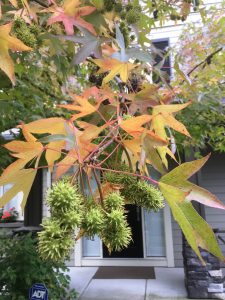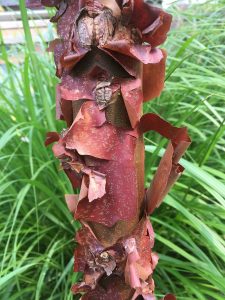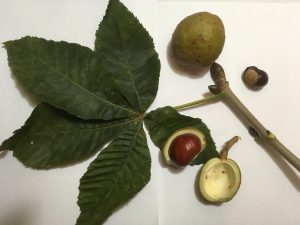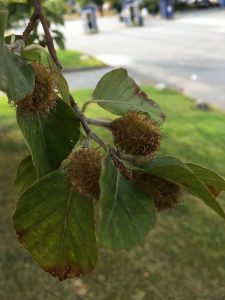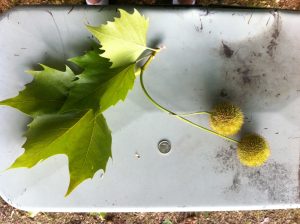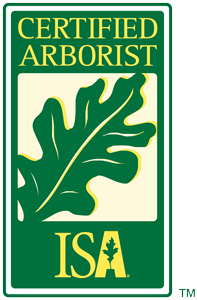There are many beautiful landscape trees in our gardens and landscapes and some are easy to identify. We’ve covered five easy to identify tree species in a previous blog post and here we continue with five more. Do you know them already or are they new to you?
Sweetgum (Liquidambar styraciflua)
The sweetgum tree is a nice alternative for places where maples dominate. The pointy leaves resemble maples but what gives away the sweetgum are its hard spiky fruits. When you see them, you know its a sweetgum tree. They remind me of spiky floating mines from war movies.
Paperbark maple (Acer griseum)
The common name gives it away but as soon as you see the gorgeous cinnamon coloured peeling bark, you know it’s Acer griseum. Sometimes, when no one is watching, I peel one section of the bark just for fun. This is beautiful landscape tree.
Horse chestnut (Aesculus hippocastanum)
There is lots to look at on the Horse chestnut. The buds are huge and so are the leaves; the key identifier is the inedible chestnut.
European beech (Fagus sylvatica)
The key identifier are fuzzy cupules which contain triangular beechnuts. Wait for the cupules to open up or take some home. They will pop open in your kitchen. My wife loves this.
London plane ( Platanus x acerifolia)
The London plane leaves are huge and the key identifier are the spherical fruits produced on long stalks. You will never forget this tree if you get close enough. I don’t suffer from any allergies but this tree can make me cry. That’s because young leaves shed short stiff hairs and so do the fruits. Backpack blowing around these trees is a nightmare.
London planes are also extremely effective at removing pollution.
Now, it’s your turn to practice identifying these five trees. They are easy to identify especially now that you know what to look for.
Get ready for volume 3.


